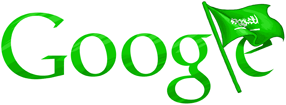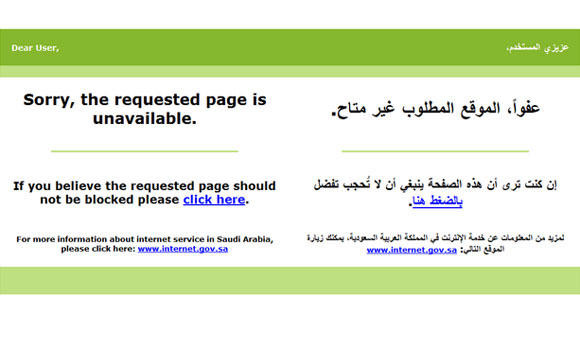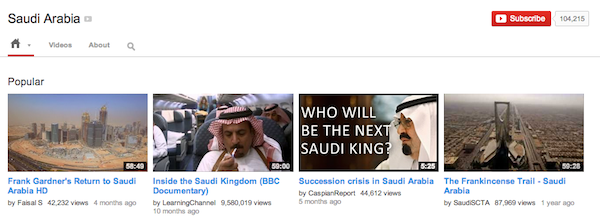With the biggest e-commerce market in Middle East region, Saudi Arabia holds vast opportunities for those looking to market their products and services in the region. This article will discuss some facets of reaching a Saudi Arabian audience with your search engine optimization efforts. Of course, one article cannot sum up all the strategies for reaching an audience in the KSA, but here we will reveal eight keys to effective SEO in Saudi Arabia.
Search Engine Marketing on Google in KSA
As of 2023 Google owns the lion’s share of the search engine market in Saudi Arabia. Depending on the source of the information, Google’s market share ranges from 95-97%. Regardless of the percentage, Saudi Arabians tend to be extremely loyal to brands once they have an established stronghold, so it may be very hard for the competition to take any market share away from Google any time in the near future. In 2023, Bing started to gain more popularity with the introduction of Chatgpt into its search engine. Despite Bing’s entry into the market with new features, Google should get the majority of your Saudi Arabia SEO efforts.
Domain Name – .com.sa
As with any other country in the world, you can gain a great advantage in by having a country-specific domain name (.com.sa). Google gives special priority to local websites when determining which websites to rank higher in their local search engines. Google does this to give local businesses the advantage they would have in the physical world. If you already have a domain name for your website and only plan on targeting Saudi Arabia, you may also consider changing the geographic target setting in your Google Webmaster Tools account to Saudi Arabia. If you are targeting more than one country with your website, we don’t recommend making this change. Also, please note that some Saudi domains have special restrictions that only allow businesses with a physical presence in the country to register the domain, so make sure to check with your domain registration company for more insight.
The Arabic Language
Although many Saudi Arabians have acquired the English language in recent years, most of the population only speaks Arabic. In light of this fact, Arabic SEO is essential to reaching Saudis, both young and old across the Kingdom. This means having high-quality content, titles, Meta descriptions, alt texts and more in Arabic. Also, knowing which keywords are being searched for in Saudi Arabia instead of other countries in the MENA region and incorporating those keywords into your strategy can give you an advantage over the competition. We discuss more on this in our detailed guide to SEO in Arabic.
Update On Language
While Arabic is the most important language in KSA for reaching consumers, English is necessary in some contexts within the Kingdom. First, many businesses work internationally or are run by native English speakers from other countries though the business owner may be Saudi Arabian. Since English is the preferred language of some of these high-level decision-makers, English optimization is essential to reach this demographic.
Additionally, wealthy Saudi consumers educated in English often prefer to use the Internet in English. If you are looking to reach affluent consumers or if you sell high-end luxury products, you should definitely optimize your website in Arabic and English.
Lastly, over 40% of the Saudi population are expats: that’s about 13.4 million expats. The most common foreign nationalities represented in Saudi Arabia are Bangladesh, India, Pakistan, Egypt, and the Phillipines, among others. Because of this diversity, many of these ex-pats rely on English despite working in an Arabic-speaking country. If you have a product or service that could appeal to these expats, your SEO efforts in Saudi Arabia should include English and Arabic. Take note that from a dialect perspective, Arab expats in Saudi speak a different dialect of Arabic than Saudis, however, the written Arabic that is used across the Arab world is one unified dialect, Modern Standard Arabic (MSA). So for your Saudi SEO efforts, you only need to focus on MSA.
Censorship’s Impact on SEO
Most countries would not include censorship in an SEO article, but in the case of Saudi Arabia it needs to be mentioned. Each year online censorship appears to be getting more sophisticated across the kingdom. If you want to show up in search results in Google in Saudi Arabia, you need to avoid getting your website censored or blocked in KSA. The reason is that even if your blocked website can climb to the top of Google if users click on the link to your website, they will be redirected to the censorship page when they are accessing the website in Saudi Arabia. To add to this, users bounce back to Google quickly when they see that the page is blocked and Google will assume your search result is not ideal, and your website will quickly lose its place on the first page of Google. For more about avoiding censorship, visit our Saudi Arabia Online Marketing Profile. That said, for many industries, censorship issues might not be a problem at all.
Geo-targeting cities Saudi Cities
If you aim to target cities across Saudi Arabia, you shouldn’t forget about geo-targeting specific regions across the country. Some of the major cities worth targeting are listed below, along with a brief description of their main activities.
- Riyadh
- Riyadh is the capital of Saudi Arabia and the largest city in the Kingdom. Aside from its political significance, Riyadh is an economic hub and home to many branches of major international banks and companies.
- Jeddah
- The second largest city in KSA, Jeddah is a booming metropolis that has been up-and-coming in the past years as the site of many international events. As a port city on the Red Sea, Jeddah is also a key site of international trade.
- Mecca
- Mecca is the holiest site in Islam and sees massive amounts of tourism each year due to the Hajj pilgrimage to Mecca. In 2023, over 2 million Muslims visited Mecca. Due to the consistently high amount of visitors, the hospitality and service industry in Mecca are key economic sectors.
- Medina
- Like Mecca, Medina is a holy city and another site of Islamic pilgrimage that draws international religious tourists. There are also a couple big industrial zones in the city that produce a range of goods, from petroleum products to local Saudi dates for export.
- Al-Ahsa
- Al-Ahsa region is a historical oasis region that is close in proximity to Bahrain and Qatar and a choice destination for tourists from these neighboring countries. Al-Ahsa’s economy is also strongly supported by the oil industry, as it is home to the worl’d largest conventional oil field.
- Ta’if
- One of the largest cities in KSA by population, Ta’if is known for being the “summer capital” of Saudi Arabia and is a prominent resort city thanks to its proximity to the coast and mild climate. Ta’if is located in an agricultural region that sources exports of fruits and honey.
- Dammam
- Dammam is the capital of Saudi Arabia’s Eastern Province and the site of many government and administrative facilities. Dammam is home to the King Abdul Aziz Sea Port which is the largest port on the Persian Gulf.
- Khamis Mushait
- Khamis Mushait is the 5th largest city in KSA that is known for its massive military airbase. Other than that Khamis Mushait also features beautiful souks and Islamic sites in its old city, making it a choice destination for local and international tourists.
- Buraidah
- Located in northern-central KSA, Buraidah is in the heart of a major agricultural zone that produces a range of products. There is also an international airport in Buraidah, making it well-connected economically to other major cities in the region.
- Khobar
- Along the Persian Gulf, Khobar is another major resort city that is famous for its 10-mile waterfront corniche and beautiful parks. There are many luxury hotels in Khobar that are frequented by tourists from nearby Gulf countries.
Once you have decided which cities in the region you want to target you should consider creating specific landing pages for each city. Each of these pages should have titles and content that is related to both your offering and that specific city. For example a page could have the title “Riyadh Website Design Services” all about the unique design elements that appeal to people from Riyadh. Avoid just saying the same thing on each of these pages but consider how you might add unique value to visitors from this city. Examples of this include discussing how your product or service is different for that city, adding valuable images or maps for that city, or even discussing unique attributes of that city. If you have a location or branch in that city, add the address to that page inside the HTML address tag.
Host your website in Saudi Arabia
Hosting is a little challenging to do for some websites, but if you can host your website in the KSA, it can give you an advantage over websites hosted outside the region. If you can’t find a Saudi Arabian hosting company, you should consider hosting your website in the Gulf region. AWS now offers hosting in both Dubai and Bahrain which are both very close to Saudi Arabia.
Mobile
Consistently across most websites in various industries, mobile traffic comprises a higher percentage than desktop. We’ve seen websites targeting Saudis that get more than 95% of their traffic from mobile devices in some cases. Smartphone penetration in Saudi Arabia is also huge at 97%, as is the general internet penetration rate at 99%. In light of this and that Google favors mobile-friendly websites in the search results, making your website mobile-friendly is essential to your success with SEO in Saudi. Having a responsive website is helpful, but in addition to this, you should also focus on getting your website to load fast on mobile connections in KSA. Aim for a load time of 3 seconds or less. Remember that page load times will vary in different countries so make sure to check your average page load time is for Saudi Arabia in your Google Analytics account.
Having a strong social media presence is also a great way to increase organic traffic to your page. Saudi Arabians are extremely active on social media: nearly 80% of the population uses at least one social media site, with the most popular sites being Facebook, Instagram, Tiktok, and Snapchat. Therefore, having a social media page that links out to your site would be a smart move to attract more customers.
Getting links from other local sites
Links are a crucial part of any SEO campaign but getting links from other authoritative websites in the KSA is even better. The fact that other Saudi sites link to you makes your website appear to be an authority in the country. As Google sees you are an authority, you will typically start to see your website rankings improve within local search results. Avoid trying to acquire links from low-quality sites in the region that could get your website penalized. Instead, you should look for opportunities to earn links from high-quality websites. It isn’t easy to always acquire quality links from other sites. Still, even one link from a local authoritative website can significantly impact your local rankings.
Video on your website
KSA, 68% of the population consumes their media more over Youtube than they do on the TV and Youtube ads reached over 80% of Saudi Arabia’s total internet user base in 2023. Clearly, video content is an extremely powerful medium in the region. If you have a budget to create even a simple short video that explains your product or service, a video can be an effective tool for attracting Saudi customers.
Depending on your product or service, YouTube may not be the best place to have videos. Hosting your videos on a third-party video hosting service often makes more sense, so video traffic is sent from search engines to your website instead of to YouTube. It is impossible to cover video SEO in full detail here, but we will try to address this topic in a future post. Regardless, video is a great way to reach Arabs in this country.
Maroof
Due to fears of internet fraud in Saudi Arabia, the Saudi Government set up a program to verify the legitimacy of websites in Saudi Arabia called Maroof. Many top websites in Saudi like Souq.com, which Amazon acquired, are registered with the website. Websites looking to do business in Saudi should consider registering with Maroof, although it isn’t required. This may impact SEO in KSA in the future, but we don’t think it is likely.
In summary, Saudi Arabia is a rapidly growing online market with tons of SEM opportunities. To effectively reach this market with your SEO efforts, key elements you should include in your strategy are a local domain name, links from local websites, and local hosting. Arabic website optimization and video SEO are also important aspects of effectively targeting this market.
Jordan Boshers
Jordan Boshers is the Chief Digital Strategist at IstiZada, a digital agency that helps companies market to Arabs. He has 12+ years of experience running successful digital marketing campaigns in the Arab world. His insights into Arabic SEO helped him grow previously unknown websites to dominate Arabic niches on Google including growing one site from 0 to more than 2.5 million users monthly. Jordan has consulted for hundreds of companies including helping corporations like Amazon, Berlitz, and Exxon Mobil with their Arabic digital marketing. Learn more here or on LinkedIn.
View all posts by Jordan Boshers







